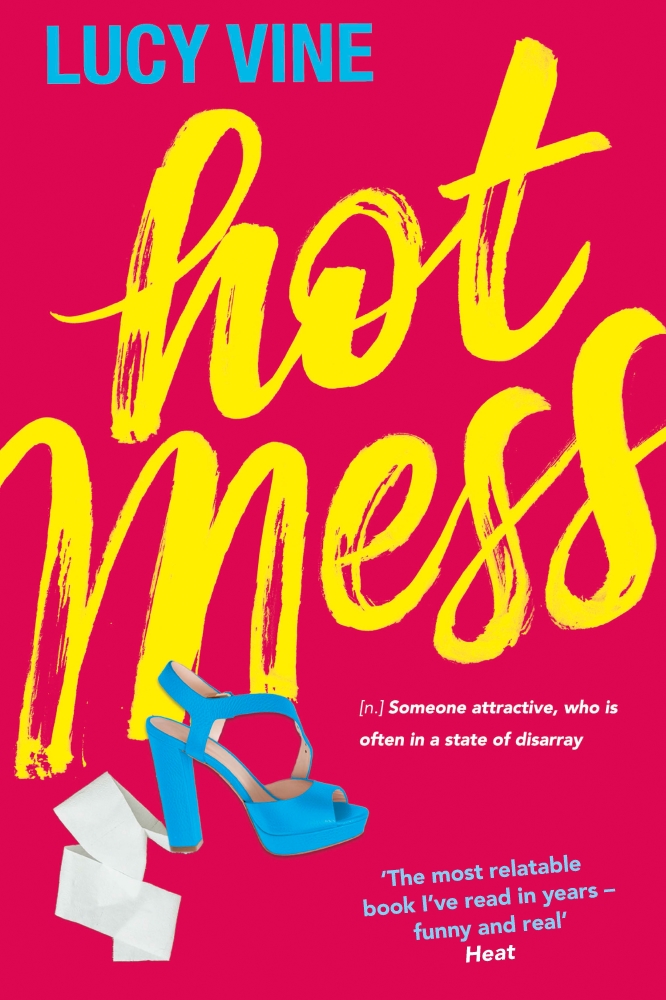There’s something about bringing out your first novel that no one tells you; everyone wants to know if it’s based on your own life. The most common question I’ve had since I wrote Hot Mess is, ‘Are you Ellie?’ And I get it, it makes sense. My female heroine, Eleanor Knight is a single woman around the age of 30, coming under a lot of pressure to find herself a boyfriend. So far, so me. And I’ll admit to a certain amount of narcissism when I was writing. Her name, for example, is Ellie, which is a sort of in-joke nod to my own initials, LE for Lucy Elizabeth.

Hot Mess
But she’s definitely not me, and that felt important for me to have in my head when I was writing the book. I had to keep some detachment from Ellie, separate her character from mine, because she does things in the book that I don’t like. She makes choices I wouldn’t make and she is petulant and difficult in a way that I hope I’m not. But that’s what I wanted for her, because I wanted her to be real.
For a long time in fiction, it felt like female characters have had one job; to be likeable. That usually meant being adorably clumsy, or cutesy or stupid. And above all else, they had to be beautiful. Men could be complicated and ugly, while women had to be sweet and winsome. We still have a way to go, but it really feels like we’re finally coming out the other side of that trope. In the last few years, we’ve started seeing wonderfully flawed female leads, some taken to insane extremes (see: Lisbeth Salander, Amy Dunne, and Rachel Watson). Women who are allowed to be as broken as their male counterparts.
Because increasingly, women in real life are embracing their own flaws, instead of hiding them away. We’ve started seeing strong, difficult women step up in real life too, with inspirational badass memoirs by women like Caitlin Moran, Sara Pascoe, Lindy West, Roxane Gay, Bryony Gordon, Daisy Buchanan. These are women who don’t need to be ‘fixed’. These are women who encourage others to be whoever they are, without fear of being labelled ‘unlikeable.’
And it’s so liberating! Instead of pretending to have everything together all the time – multi-tasking, wearing a thousand hats – we’re owning our fears and our flaws. And the more we see of characters in fiction willing to do the same, willing to be a ‘hot mess’, the better.
I wanted that so much for my heroine. I wanted her to be fully human, and I hope that’s what I’ve achieved. Ultimately, interestingly, I think Ellie Knight did come out as pretty likeable in the end. But it’s not because she’s perfect or beautiful in Hot Mess, but because she’s imperfect. She’s real and she’s relatable. And that’s because she’s not clumsy or dumb, it’s because she’s none of those things. So maybe she’s not me, but she still feels as real as me. And I think that’s what we all want to see more of.
Hot Mess by Lucy Vine, £7.99, Orion, 13th July

